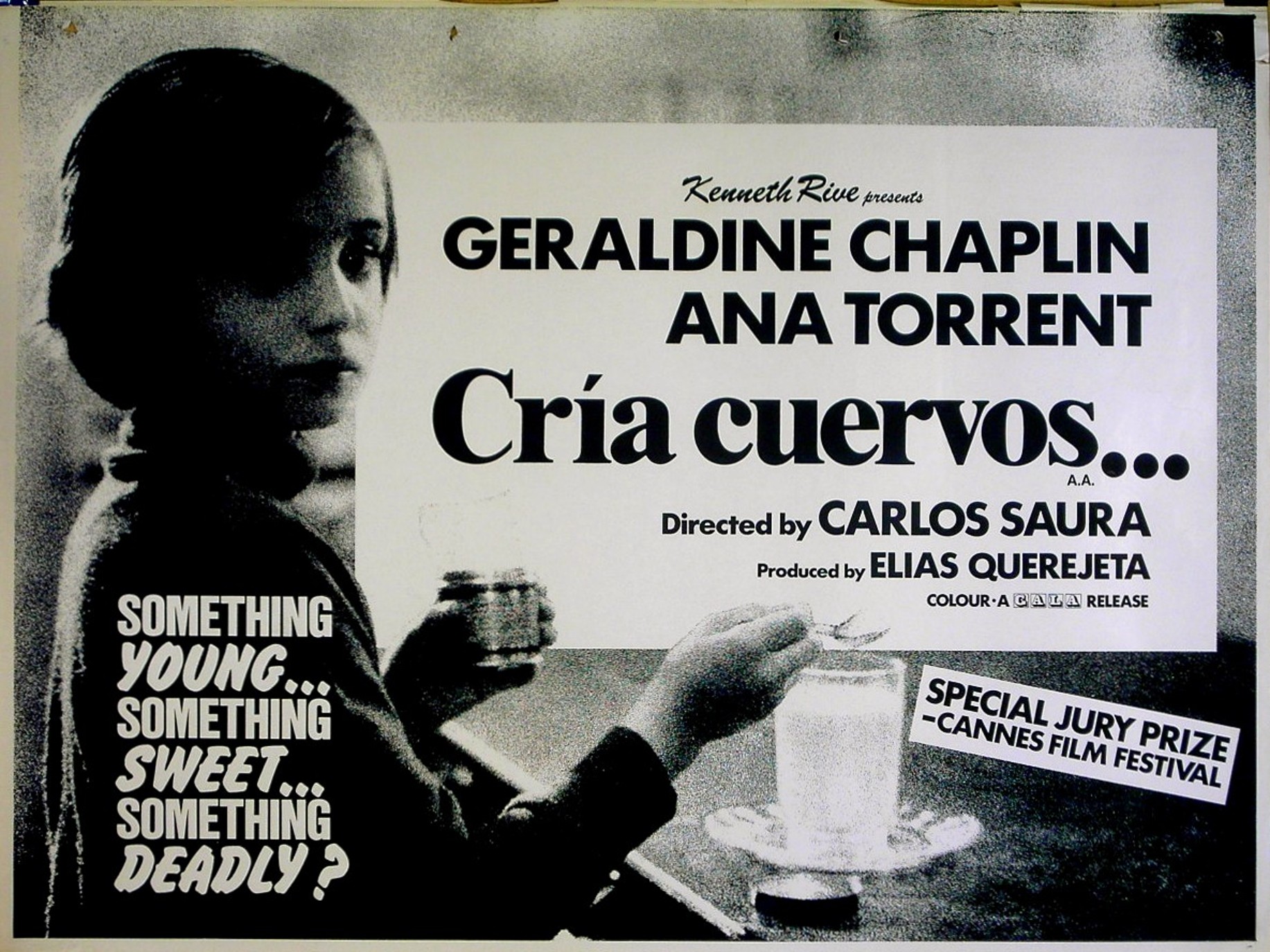Desentrañando El Dicho 'Cría Cuervos': ¿Por Qué Nos Advierte Sobre La Ingratitud?
¿Alguna vez te has topado con esa frase que te eriza un poco la piel, "cría cuervos y te sacarán los ojos"? Es un dicho que, a primera vista, suena bastante fuerte, ¿no es así? Pues, this particular Spanish saying carries a deep, unsettling truth about human nature, a kind of wisdom passed down through generations. It’s a very popular expression in the Spanish-speaking world, and for good reason, too; it speaks to something many of us have experienced or, perhaps, fear experiencing.
This refrán, or proverb, isn't just a collection of words; it's a cautionary tale, a piece of folk wisdom wrapped in a vivid, almost disturbing image. It gets you thinking about those moments when you've extended a helping hand, given your time or resources, only to find that kindness met with something less than gratitude. It's a bit like a warning sign on the path of life, pointing out where generosity might just backfire on you.
So, what's the real story behind "cría cuervos y te sacarán los ojos"? Why do we use this phrase, and where on earth did it come from? In this article, we're going to explore the full meaning, the unsettling origin, and the enduring relevance of this powerful Spanish proverb. You know, it's actually quite fascinating how these old sayings hold so much meaning.
- Paul Canon Gay
- The Slippery Noodle
- Dave From Alvin And The Chipmunks
- Eric Manly Giselle Montes
- Asu Prep Digital
Tabla de Contenidos
- ¿Qué Significa Exactamente "Cría Cuervos y Te Sacarán los Ojos"?
- La Impactante Imagen del Cuervo: Un Símbolo de Advertencia
- Rastreando las Raíces: ¿De Dónde Viene Este Dicho?
- Por Qué Este Proverbio Sigue Siendo Importante Hoy
- Lecciones del Cuervo: Más Allá de la Advertencia
- Preguntas Frecuentes sobre "Cría Cuervos"
¿Qué Significa Exactamente "Cría Cuervos y Te Sacarán los Ojos"?
At its heart, "cría cuervos y te sacarán los ojos" is a sharp warning about ingratitude. It suggests that if you nurture or help someone who is, let's say, ill-intentioned or simply lacks a sense of thankfulness, they might turn around and hurt you in return. The proverb paints a picture of betrayal, where your own good deeds come back to harm you, which is pretty unsettling, actually. It's a popular way to talk about ungratefulness, you know?
The core message is that offering kindness or support to certain people can be a risky business. Instead of receiving thanks or loyalty, you might find yourself facing harm, or perhaps, a complete lack of appreciation. It's almost like saying, "Be careful who you invest your good intentions in, because not everyone will value them." This saying really emphasizes the idea that some individuals just don't give back what they receive, or worse, they might even cause trouble for you. It's a very clear message about the consequences of misplaced trust.
It's not just about a simple lack of thanks; it's about active harm or detriment. The phrase implies a deeper level of betrayal, where the one you've helped becomes the source of your problems. So, in a way, it's a powerful reminder that not all good deeds are met with good outcomes, especially when dealing with those who might be, shall we say, less than honorable. This particular dicho makes a strong point about the falseness of people you've helped, you know, those who don't return favors.
- Quiet On Set Where To Watch
- Joe Stamm Band
- How Long Is Basketball Season
- Indiana University Womens Basketball Schedule
- Sabrina Carpenter Gunther
La Impactante Imagen del Cuervo: Un Símbolo de Advertencia
The choice of the crow in this proverb is absolutely central to its powerful meaning. Crows, as a matter of fact, are traditionally linked to quite a few things that aren't exactly positive. They're often seen as symbols of bad omens, death, and decay, and that's not just a coincidence here. The phrase "cría cuervos y te sacarán los ojos" directly refers to the crow's characteristic as a scavenger, an animal that feeds on dead things. This imagery is, you know, pretty disturbing and memorable.
When the proverb personifies the crow, it's actually referring to individuals who don't reciprocate favors, those who are, let's say, ungrateful. Just as a crow might feed on a carcass, even one it didn't kill, these people might exploit your generosity without any thought of returning it. The image of the crow pecking out eyes is particularly brutal and vivid, serving as a stark warning about the potential for deep hurt from those you've helped. It's a very graphic way to express the idea of betrayal, isn't it?
This ancient bird, with its dark feathers and sharp beak, becomes a stand-in for human ingratitude. It's a bit like saying, "You feed this creature, you care for it, and its true nature—its predatory, self-serving nature—will eventually reveal itself, harming you." The custom of this carnivorous bird eating cadavers is, you know, directly tied into the proverb's meaning. It's a powerful, almost primal image that sticks with you, really highlighting the danger of nurturing someone who might ultimately turn against you.
Rastreando las Raíces: ¿De Dónde Viene Este Dicho?
The origin of many popular sayings, including "cría cuervos y te sacarán los ojos," often goes way back to ancient times, even though a precise starting point can be a bit fuzzy. Proverbs and popular expressions, you see, tend to evolve and get passed down through generations, making their exact beginnings hard to pinpoint. This particular refrán is a popular saying in Spain that has, you know, been shared from one generation to the next, becoming deeply ingrained in the culture.
While the specific historical origin of "cría cuervos" is, well, uncertain, it's pretty clear that its wisdom has been shaped by centuries of human experience. These types of phrases often come from observations about life, about human behavior, and about the natural world. The disturbing, yet memorable, nature of this expression has certainly helped it stick around through the years. Many of these sayings, as a matter of fact, have a fascinating and sometimes unsettling history behind them.
It's a saying that has transcended generations and cultures within the Spanish-speaking world, which is quite something. This refrán has, you know, been popularized in Spanish culture, and it's a testament to how universal the theme of ingratitude really is. The idea that helping someone might lead to your own detriment is a lesson that people have learned the hard way for a very long time, and this proverb captures that feeling perfectly. It's a powerful piece of folk wisdom that, you know, just keeps on giving lessons.
Por Qué Este Proverbio Sigue Siendo Importante Hoy
Even in our current times, the wisdom contained in "cría cuervos y te sacarán los ojos" remains incredibly relevant. The warning it carries about misplaced trust and the sting of ingratitude is, you know, something that people still experience every single day. We live in a world where relationships, both personal and professional, can sometimes be complicated, and this proverb serves as a timeless reminder to be discerning about who you put your faith in. It's a very practical piece of advice, actually.
Think about situations where you might offer a friend a significant loan, give a struggling family member a place to stay, or even mentor a colleague, only to find your generosity exploited or, worse, turned against you. This refrán, you see, perfectly describes those painful moments when your good intentions are met with betrayal or a complete lack of appreciation. It's a popular saying that warns about the negative outcomes of raising or educating someone who might later turn against you, which is, you know, a tough lesson.
This phrase teaches us that we should always treat others well, but it also subtly suggests that we need to be aware that not everyone will reciprocate that kindness. It's a way of saying, "Be good, but also be smart." The benefit of remembering this saying is that it helps us be more cautious, to, you know, consider the character of those we help. It's a phrase that truly encapsulates a warning, making it one of the most emblematic and rich in meaning within the Spanish language. It’s a very useful reminder, honestly.
Lecciones del Cuervo: Más Allá de la Advertencia
While "cría cuervos y te sacarán los ojos" certainly delivers a stark warning, there are, you know, deeper lessons we can take from it beyond just being careful. It encourages us to reflect on the nature of human relationships and the importance of recognizing genuine character. It's not about becoming cynical or distrustful of everyone, but rather about cultivating a healthy sense of discernment. This proverb, in a way, prompts us to look closely at who we are helping.
One key takeaway is the importance of understanding that not everyone shares your values of gratitude or reciprocity. Some people, perhaps, are just not wired that way, or they might be driven by self-interest. The proverb, you know, makes a strong allusion to the crow's scavenging nature, meaning it feeds on dead animals, which is a powerful metaphor for human behavior. It reminds us that while we should strive to be good, we also need to protect ourselves from those who might take advantage of our kindness.
Ultimately, this refrán serves as a powerful tool for self-preservation, a kind of wisdom that helps us avoid unnecessary pain. It’s a reminder that sometimes, the most challenging lessons come from those we’ve tried to help the most. So, you know, it's about being aware, being prepared, and perhaps, learning to set healthy boundaries in our interactions with others. This particular saying, among all the popular proverbs, is one that carries a rather negative sense, but it's also incredibly insightful.
Preguntas Frecuentes sobre "Cría Cuervos"
¿Qué significa el refrán "cría cuervos y te sacarán los ojos"?
This refrán, you know, warns that if you help or care for someone who is ungrateful or malicious, they might end up harming you instead of showing thanks. It's a popular way to talk about the bitterness of ingratitude and betrayal, where your good deeds are met with negative consequences. It's a very clear message, actually, about the risks of misplaced kindness.
¿Cuál es el origen de la frase "cría cuervos y te sacarán los ojos"?
The specific origin of this proverb is, well, not entirely clear, as is common with many ancient sayings. However, its roots are deep in popular wisdom and observation of human behavior, as well as the symbolic nature of the crow. It has been transmitted through generations in Spanish-speaking cultures, you know, becoming a deeply ingrained part of the language and its warnings.
¿Por qué se usa la imagen del cuervo en este dicho?
The crow is used because it's traditionally associated with negative things like scavenging, death, and betrayal. The proverb personifies the crow to represent ungrateful people who might exploit your help and then turn against you, much like a crow might feed on something it didn't create. It's a very vivid and, you know, rather disturbing image that makes the warning particularly impactful.
For more insights into Spanish proverbs and their cultural significance, you might want to check out a reputable source on Spanish proverbs. You can also learn more about Spanish sayings on our site, and we have another page where you can find out about common expressions used in daily life.
- Bass Fishing Naked
- Sam Sutton New York
- Tax And Assessment Maryland
- Tricia Is A Birdie
- Huntsville Hourly Forecast

Cria Cuervos - Carlos Saura - British Blu-ray

CRIA CUERVOS | Rare Film Posters

Cria Cuervos... on Behance